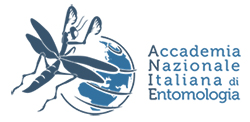
Luciana Tavella
luciana.tavella@unito.it
BIOGRAPHY
Master degree in Agricultural Science, University of Torino, in 1982, and PhD in Agricultural Entomology, University of Bologna, in 1989. Now full professor at the University of Torino, and lecturer in charge of Biological and integrated pest control, Pest management in cropping systems.
She carries out her research activity in the area of agricultural entomology. The main research topics are: – biology, behaviour and ecology of emerging crop pests, including indigenous and exotic insects; – biology, behaviour and ecology of natural enemies (e.g. predatory bugs and parasitoid wasps), and evaluation of their role and efficiency in controlling pest outbreaks; – biological control and integrated pest management of insects noxious to crops; – studies on virus-vector relationships in tospovirus-thrips system; – taxonomic, biological and chorological studies on Hemiptera Heteroptera. The results of the scientific activity are presented in numerous articles in international scientific journals.
Haye T., Moraglio S.T., Stahl J., Visentin S., De Gregorio T., Tavella L., 2020. Fundamental host range of Trissolcus japonicus in Europe. – Journal of Pest Science 93: 171-182.
Ingegno B.L., Messelink G.J., Bodino N., Iliadou A., Driss L., Woelke J.B., Leman A., Tavella L., 2019. Functional response of the mirid predators Dicyphus bolivari and Dicyphus errans and their efficacy as biological control agents of Tuta absoluta on tomato. – Journal of Pest Science 92: 1467-1478.
Mazzetto F., Marchetti E., Amiresmaeili N., Sacco D., Francati S., Jucker C., Dindo M.L., Lupi D., Tavella L., 2016. Drosophila parasitoids in northern Italy and their potential to attack the exotic pest Drosophila suzukii. – Journal of Pest Science 89: 837-850.
Bodino N., Ferracini C., Tavella L., 2016. Is host selection influenced by natal and adult experience in the parasitoid Necremnus tutae (Hymenoptera: Eulophidae)? – Animal Behaviour 112: 221-228.
Margaria P., Bosco L., Vallino M., Ciuffo M., Mautino G.C., Tavella L., Turina M., 2014. The NSs protein of Tomato spotted wilt virus is required for persistent infection and transmission by Frankliniella occidentalis. – Journal of Virology 88: 5788-5802.
